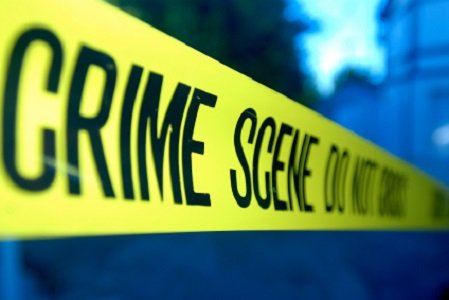We often hear about the crimes and homicides that take place in Chicago and in particular the south side of Chicago. The murder and overall crime rate is frightening.
I wouldn’t want to walk around the streets of Roseland, Englewood or a number of Chicago neighborhoods at night. Actually, I don’t think I would want to walk around them during the day. However, that is not to say that all or even a large number of people in South Chicago are hoodlums. I think just the opposite; most of the people are good and decent.
Last Sunday, I spoke at a church in Roseland and spent almost five hours with a group of very sweet, kind people who live in this neighborhood— 99.9 percent of the group was African American. My wife and I had a beautiful time with these people. I asked the pastor who lives in the neighborhood if he felt safe and he replied no. He went on to tell me that he never lets his grandkids out alone to play in his own yard. He occasionally hears shots in his neighborhood and even had some bullet holes in his car some months back. He went on to tell me, I was in one of the most violent neighborhoods in Chicago.
Sadly, there is horrific violence on the Southside of Chicago. Tragically, there are criminals and hoodlums in this incredible city. However, most of the people living on the Southside are not bad people. They are good people trying to survive and overcome the minority of criminals, hoodlums and gang members who make their community scary.
I was raised in Martin County, Kentucky. President Lyndon Johnson began his campaign on poverty in our hometown in 1964. He visited Tom Fletcher about three miles down the road from our family. The Fletcher family became the poster family for Johnson’s war on poverty. We didn’t appreciate the stereotyping of all Martin county people as poor, ignorant hillbillies. I’m sure the Fletcher family didn’t appreciate it either. However, with the history of the Hatfields and the McCoys along with television programs like The Dukes of Hazzard, many of us got the media’s drift about how they viewed Appalachian people.
Yes, just like Chicago, Appalachia has enough ignorance and poverty. President Johnson’s war on poverty just created more poor people. However, lots of people from Appalachia complete college or conduct successful businesses, work hard and meaningful jobs and pay lots of taxes, just like many people do in Chicago. Like all the people on the Southside of Chicago we don’t like to be stereotyped either.
We stereotype in a multitude of other ways. Stereotypes freeze us into time. They limit our ability to communicate, understand and move forward. When we stereotype we make a generalization that limits productivity and success.
I’m so grateful I got to spend a Sunday on the Southside of Chicago. The next time I hear about a Chicago crime, murder or other violent acts I will have some lovely people on my mind and I will be praying and thinking with them about how we all need to work together to rise above the stereotypes and the problems and make this world better.
Glenn Mollette is an American Syndicated Columnist, speaker and the author of 11 books. His column appears in all 50 states. Mollette’s books are available at Amazon.com
